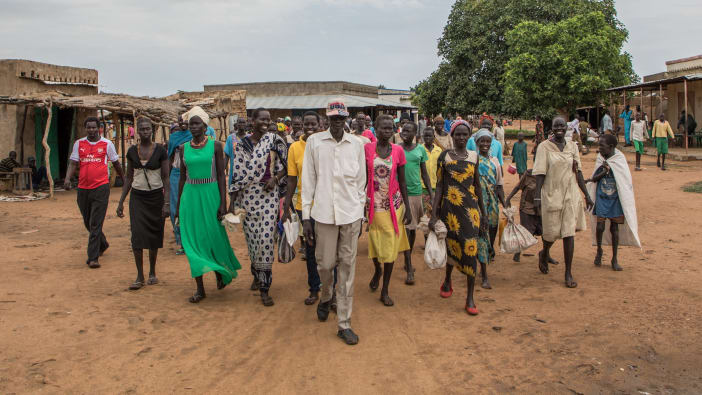Caring for our environment
by Revd Tim Oakley.
When God created Adam and Eve, he put them into a garden, with the responsibility of looking after it. We may not all have gardens, but as the descendants of Adam and Eve, we all have a responsibility for the ‘big garden’ around us – the environment. Unfortunately, because of our sin, we are not very effective at caring for it. Only when God completely remakes the universe, will we and our environment be in perfect harmony. Meanwhile, the Bible gives us a few guidelines about living here today.
1. Read Leviticus 25:1–7
Is this a rule we must obey today (most of us are not Jewish), or does this simply give us good guidance to follow? Why did God tell them not to cultivate during every seventh year? I would suggest the following reasons…
Firstly, it was in honour of God, to remind people that it was God who provided them with land and crops. It was not just their own effort.
Secondly, perhaps because the people themselves benefited from a break in the annual cycle of hard work. Thirdly, and also important (verse 7), it was for the good of the environment – for the plants, the soil, and the animals (and even insects)! Even today, land is often left fallow for a year, and benefits from this.
- How do we show that God has given us the land, rain, and crops?
- Do we enjoy a break from work, during which we can relax and thank God?
- Is it possible to overwork the land?
2. Read Leviticus 26:33–35
The people actually forgot the Sabbath rules. Because of this and other reasons, they were taken away from the land. See how God almost rejoices, not because the people have disobeyed him, but because at last, the land can enjoy the ‘rest’ from cultivation which it had deserved in God’s honour.
We do not keep the same rules, but once we have worked out what is ‘best’ for the land, we must try to follow what what we have decided. Try not to be put off by difficulties!
3. Read Deuteronomy 20:19–20
In war, the rules of life change. People can forget to love in the same way. The environment suffers too. In those days, trees were cut down to use in attacking enemy cities. God could not stop that, as wars sometimes become unavoidable. Instead, he put a limit to the damage caused by war. So fruit trees were not to be cut down. Why? Because it was not in their future interests. No fruit trees means no fruit, less food and hungry people.
- Can we think of mistakes made in our local area, which have later meant less food (or worse health)?
- Do we plan what we plant or what we do to the environment, just for tomorrow; or for next year; or for twenty years time (when our children will be grown up)?
4. Read Matthew 10:29–31
Are small birds important to God? Yes! He feeds them, and he even ‘clothes’ the plants with beautiful flowers. (Matthew 6:25–30) But even more, he cares for people. We were created in his image. He can even check if one of our hairs has gone missing! So, while we should care for the environment (and birds and plants) because God cares, even more, we should care for people.
- Are there any changes in our local area which should be made, because they will clearly help the people who live there?
- If changes are made, will some people oppose it because the environment (trees, animals, rivers, etc) is more ‘special’ to them, than the humans who would benefit? How can we solve this problem, for the good of the community?
In the Bible, the whole creation is important, as well as the people. We are meant to work in harmony with the world God has made to support us. Take courage when you seek to protect the environment, and the people who live there! This difficult project is also on God’s agenda. You can pray about its success.









